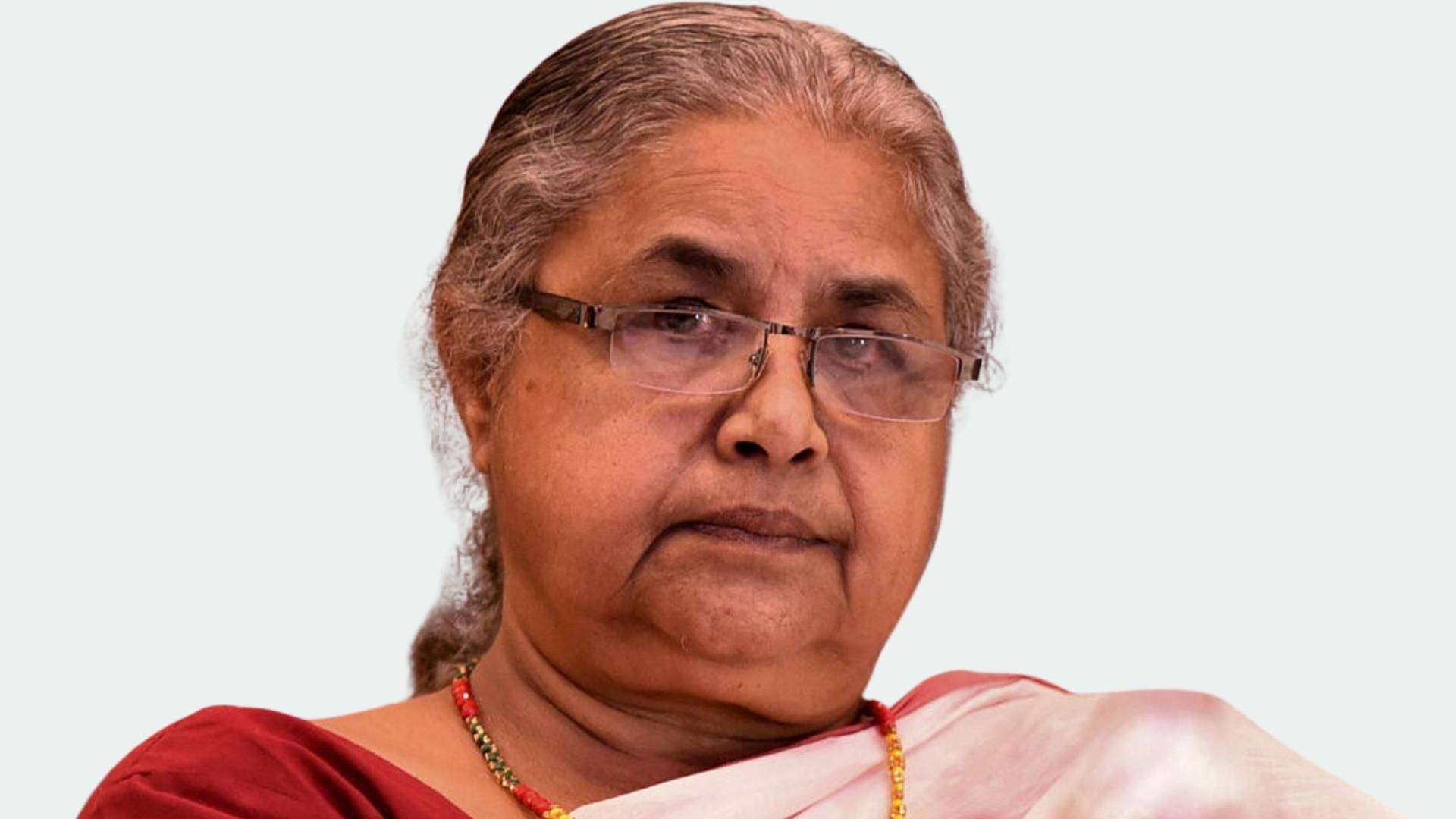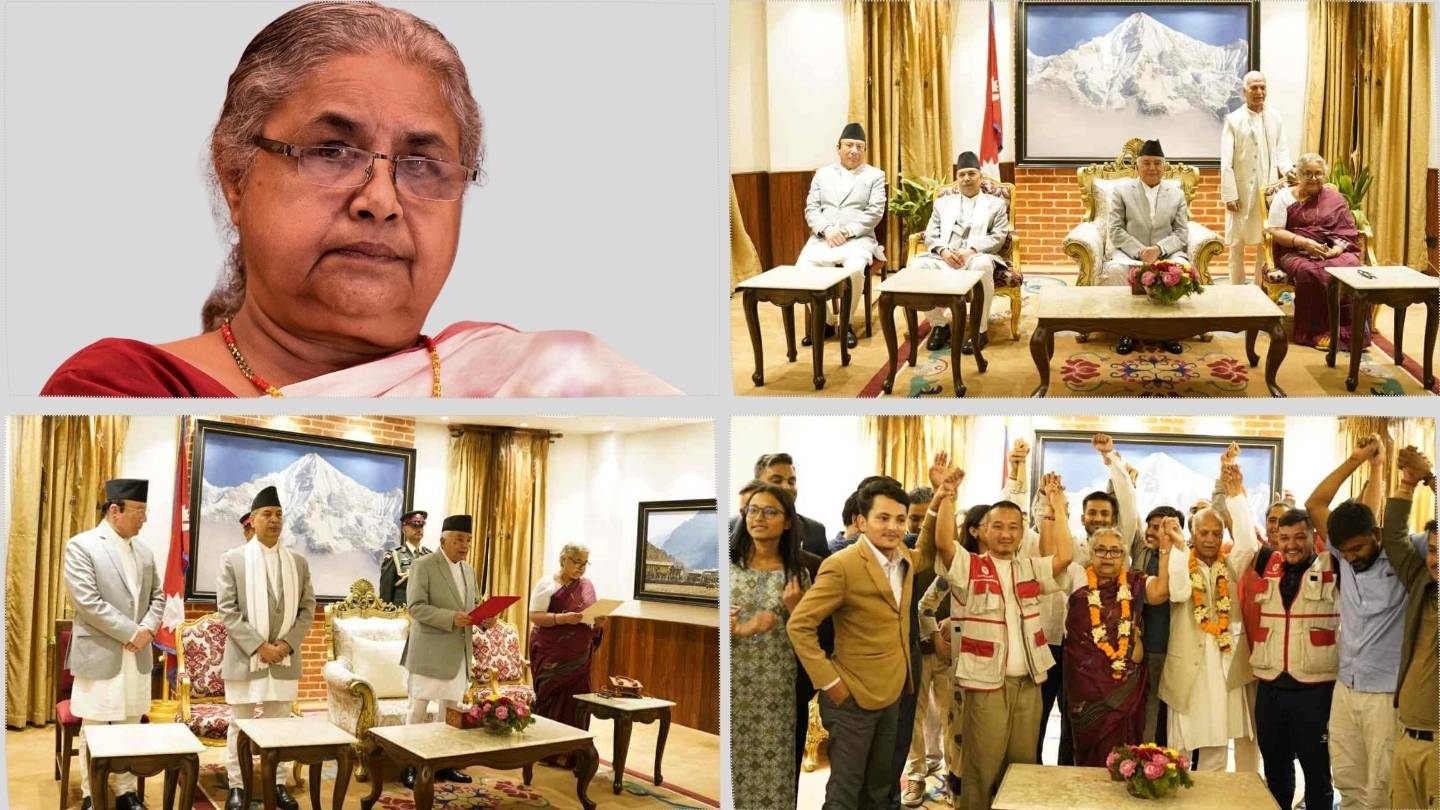
Sushila Karki sworn in as Nepal’s interim prime minister after week of unrest
Kathmandu — September 13, 2025
Former Chief Justice Sushila Karki took the oath as Nepal’s interim prime minister on Friday, becoming the first woman to lead the country’s government.
The ceremony was held at Sheetal Niwas and administered by President Ram Chandra Paudel in the presence of senior officials and diplomats.

Context of the Appointment
Karki’s selection came after youth-led protests that erupted following a temporary social-media ban and expanded into wider demonstrations over corruption and governance issues.
The protests turned violent, resulting in dozens of deaths and more than 1,300 injuries. Curfews were imposed, and security forces were deployed in major cities.
With the situation worsening, then-Prime Minister K.P. Sharma Oli announced his resignation, creating a power vacuum and paving the way for an interim arrangement supported by political parties, protest leaders, and security authorities.
Legal and Constitutional Basis
The appointment was made under Article 61 of the Constitution of Nepal, which outlines the President’s responsibility to safeguard the constitution and ensure government continuity.
Legal experts have raised questions about the eligibility of a retired chief justice to assume executive office, and an official clarification from the presidency or parliament is expected.
Interim Government Priorities
The interim cabinet is expected to focus on three main objectives:
-
Restoring Calm: Ending curfews, reopening public spaces, and reducing tensions in affected areas.
-
Independent Inquiries: Launching investigations into protest-related deaths, injuries, and prison escapes.
-
Election Roadmap: Preparing and publishing a clear timetable for general elections within the agreed timeframe.
Cabinet members and the structure of the inquiry commission are expected to be announced soon.
About Sushila Karki
Sushila Karki served as Chief Justice of Nepal from 2016 to 2017, the first woman to hold the position.
During her tenure, she faced an impeachment motion filed in parliament, which was stayed by the Supreme Court, allowing her to return to duty.
Karki is also the author of an autobiography, Nyaya, and a novel, Kara, which reflects her experiences during the 1990 democratic movement.
Public and Political Response
Protest leaders welcomed the appointment as a sign of accountability and a step toward rebuilding trust.
Major political parties expressed support for a peaceful transition and cooperation with the interim government to organize elections.
Business groups and civil society organizations called for stability and the quick resumption of normal commercial activity.
Human Impact and Security Situation
Authorities reported about 51 fatalities nationwide during the unrest.
Hospitals recorded over a thousand injuries, and large-scale prison breaks were reported in several districts, with authorities still working to locate escapees.
Human-rights groups have urged impartial investigations and compensation for victims’ families.
What to Expect Next
Key developments in the coming days include:
-
Official announcement of cabinet members.
-
Formation of inquiry commissions with clear mandates and deadlines.
-
Release of an election schedule.
-
Public updates from the presidency and prime minister’s office on security and governance measures.
Conclusion
Sushila Karki’s appointment marks a historic first for Nepal and comes at a time of national tension.
The interim government now faces the immediate challenge of calming the streets, delivering justice for protest-related incidents, and preparing for free and fair elections.
Its performance in the coming months will determine whether this transitional period restores public trust and sets the stage for long-term stability.


